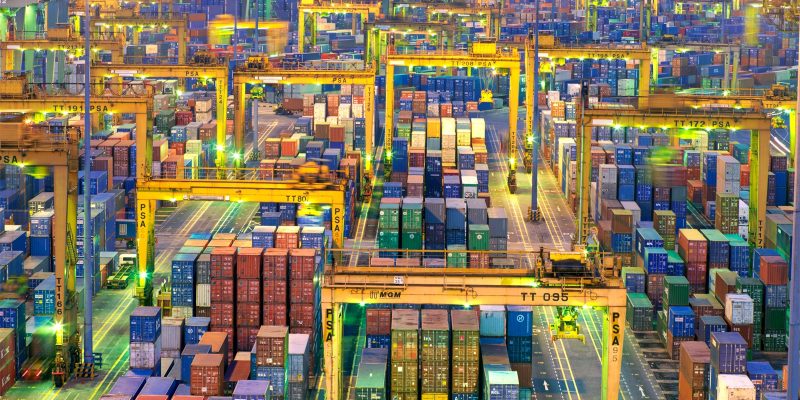We Wrote a detailed guide that covers the new Incoterms 2020 vs 2010, as well as the definition for each that you can find here: https://www.sourcinghub.io/incoterms-2020-guide/
This article will only cover what was updated and assumes you are already basically familiar with the incoterms.
On January 1, 2020, the new Incoterms 2020 went into effect. These new terms were released by the International Chamber of Commerce in Sept of 2019 and set guidelines for how shipments between a seller and buyers in different countries are handled. The ICC has released new incoterms every decade with the last change in 2010. Incoterms also define who is expected to pay the insurance and when the transfer of risk happens between the buyer and the seller. This is the first time that the Incoterms drafting group has included representatives from China.
One big thing to keep in mind is the Incoterms are Voluntary and need to be in addition to the contract. As Incoterms are defined and recognized globally it’s important that you reference them when making a contract. Regardless, you can choose not to use the incoterms when creating a shipping contract as long as you make sure to define which parties are responsible for the delivery of goods, insurance, shipment, risk, customs clearance and more.
What differs from the 2010 to 2020 Incoterms?
Overall, the difference between the 2010 and 2020 incoterms is fairly small when compared to the changes from the previous decades. There is only one new term and most of the changes are minor.
DAT is now DPU
DPU (Delivery Place Unloaded) replace DAT (delivery at Terminal), in the incoterms 2020. This is the only newly named term in the guide, and the term is erectly exactly the same, just with clearer language and rules. The obligations of the Buyer and Seller are exactly the same in both DP and DAT.
The ICC viewed the change as necessary as you cannot unload goods at the dock, port or airport, so they needed to make it clear that it could only be unloaded after the goods had been cleared by customs and had arrived at a final destination such as a warehouse.
FCA option for On-Board notation for Bill of Lading
In the Incoterms 2010 rules who was responsible for the On Board Bill of Lading was not defined and had to clarify in the contract if the FCA option was chosen. As this leads to confusion, the new 2020 rules make it clear the buyer should instruct the carrier, or it’s agent, to release the Bill of Lading(B/L) on the seller’s behalf. The B/L will have the annotation of on-board or Aboard that states, the goods have been loaded on the vessel. The Bill of Lading is one of the most common documents and is used to release payment if you are paying by a letter of credit.
New Insurance Rules For CIF and CIP
There are some changes to Cost Insurance and Freight (CIF) and Carriage and Insurance Paid To (CIP) which are the only two Incoterms that define who is to pay for insurance. For both CIF and CIP the insurance is to be paid by the seller. Presouvly the seller was only responsible for the minimum insurance requirements, however, in the new rules, the seller has to purchase insurance for the shipment to at least 110% of the value of the goods.
Greater clarity on who is responsible for what
The new 2020 clarified which party is, the buyer or seller, is responsible for Customs Clearance, which party is responsible for the payments and who is to assume the risk and insurance cost. The new rules were rewritten to use less technical jargon and to be easier to understand. It tried to make the rules as clear as possible while still being legally enforceable in a multinational legal contract.
DIY Transport Options
For the first time, the new incoterms now recognize that both the Buyer and seller can transport the goods themselves using their own vehicles. In the previous version, the rules assumed that the transportation would exclusively be handled by a 3rd party shipping service. Basically this means that they recognize that the buyer can now pick up god using their personal vehicle from a port or terminal destination.
This update only effects Free Carrier (FCA), Delivered at Place (DAP), Delivered at Place Unloaded (DPU) and Delivered Duty Paid (DDP)
New Security Requirements
The new rules make it much more clear which party is to be liable at two key points: Transport from the country of origin and customs clearance into the destination country.
For the transport out of the country, the Seller is to assume liability for CPT, CFR, CIP, CIF, DAP, DPU, and DDP while the Buyer is liable if it is EXW, FCA, FAS, and FOB. Customs clearance falls on the party defined in the terms.




